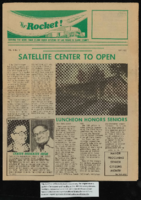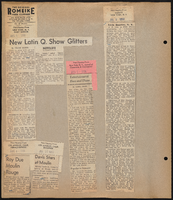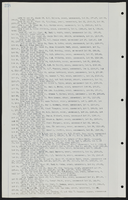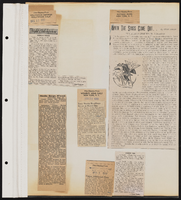Search the Special Collections and Archives Portal
Search Results
Burton, Lance, 1960-
Lance Burton delights in talking about his magic craft and the joyful memories of his early and swift rise to become a master magician. This oral history includes memories of his rise to fame from youthful phenomenon to an over-thirty year Las Vegas career that began in 1981. He believes in the extraordinary value of magic and shares a poignant anecdote of a young autistic boy’s reaction to his magic show.
Person

J. David Hoggard: newspaper clippings and correspondence
Date
Archival Collection
Description
Folder of materials from the Mabel Hoggard Papers (MS-00565) -- Personal papers file. This folder contains correspondence addressed to David Hoggard and newspaper clippings about him, particularly in his role as Program Coordinator and Executive Director of Clark County Economic Opportunity Board, and also multiple letters from NAACP Special Contribution Fund West Coast Representative Tarea Hall Pittman. It also includes a name plaque: "J. David Hoggard Executive Director"; Hoggard's U.S. government motor vehicle operator's identification card; Hoggard's business cards for his roles as Advisory Board member for Clark County Community College and sales manager representing Milico; and a fraternity certificate initiating him as a member of Kappa Alpha Psi, May 1, 1954. Volume 6 Issue 2 (May 1981) of "The Rocket!", a newspaper "serving the more than 45,000 older citizens of Las Vegas & Clark County," and a special anniversary supplement from May 1981, are present in this folder but not digitized in their entirety.
Mixed Content

Anita Tijerina Revilla oral history interview: transcript
Date
Archival Collection
Description
Oral history interview with Anita Tijerina Revilla conducted by Marcela Rodriguez-Campo on October 09, 2018 for the Latinx Voices of Southern Nevada Oral History Project. In this interview, Revilla discusses her early life in San Antonio, Texas. She talks about her decision to make education a priority, figuring out the college application process on her own, and her initial interest in social justice. Revilla talks about how her critical consciousness was developed, and her pedagogical approach to teaching. Revilla describes her role in the 2006 May Day march, advocating advocating for the queer community, and disrupting oppressive systems to increase educational access for students. Lastly, Revilla discusses ethnic studies and the history of inequality in the United States.
Text

Meeting minutes for Consolidated Student Senate University of Nevada, Las Vegas, March 9, 1989
Date
Archival Collection
Description
Text






